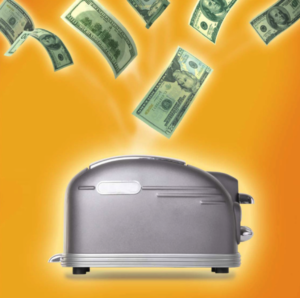 Today’s top story: How to tame your student loans. Also in the news: Why you shouldn’t skimp on insurance, critical personal finance tips for your first years after college, and three bills to pay off before you retire.
Today’s top story: How to tame your student loans. Also in the news: Why you shouldn’t skimp on insurance, critical personal finance tips for your first years after college, and three bills to pay off before you retire.
How to Tame Your Student Loans (Told in Under 350 Words)
Wrangling your student debt.
Don’t Skimp on Your Insurance
Pay now or pay more later.
4 Critical Personal Finance Tips for Your First Years After College
It’s a whole new world.
3 bills to pay off before you retire
Smoother sailing.
 Today’s top story: Mapping your financial journey. Also in the news: What Wells Fargo’s settlement might mean for you, six unusual ways to get out of debt, and surprising Social Security benefits for divorced spouses.
Today’s top story: Mapping your financial journey. Also in the news: What Wells Fargo’s settlement might mean for you, six unusual ways to get out of debt, and surprising Social Security benefits for divorced spouses. Today’s top story: What to know about cash-back shopping websites. Also in the news: Tips to slash unnecessary monthly expenses, what you need to know about online bill pay, and the factors that affect your credit card’s interest rate.
Today’s top story: What to know about cash-back shopping websites. Also in the news: Tips to slash unnecessary monthly expenses, what you need to know about online bill pay, and the factors that affect your credit card’s interest rate.  Today’s top story: Why you’ll always need cash. Also in the news: Must-know tips for selling your home, nontraditional ways to fund your retirement, and why people with low checking account balances pay high fees.
Today’s top story: Why you’ll always need cash. Also in the news: Must-know tips for selling your home, nontraditional ways to fund your retirement, and why people with low checking account balances pay high fees. Today’s top story: Simple ways to teach your kids about money. Also in the news: Investing tips for those in their 20s, the best things about buying a house in the fall, and why you should look at frugality as a method instead of a lifestyle.
Today’s top story: Simple ways to teach your kids about money. Also in the news: Investing tips for those in their 20s, the best things about buying a house in the fall, and why you should look at frugality as a method instead of a lifestyle. Today’s top story: How to get the most for your old phone. Also in the news: Why starter homes are becoming a thing of the past, five surprising things that could leave you poor, and how to invest your way to a million dollars.
Today’s top story: How to get the most for your old phone. Also in the news: Why starter homes are becoming a thing of the past, five surprising things that could leave you poor, and how to invest your way to a million dollars. Today’s top story: How not to pick a bank. Also in the news: bank accounts that foster independence for disabled people, how to pick the right college to avoid student debt, and newly updated government rules to help homeowners facing foreclosure.
Today’s top story: How not to pick a bank. Also in the news: bank accounts that foster independence for disabled people, how to pick the right college to avoid student debt, and newly updated government rules to help homeowners facing foreclosure.